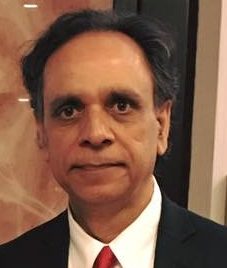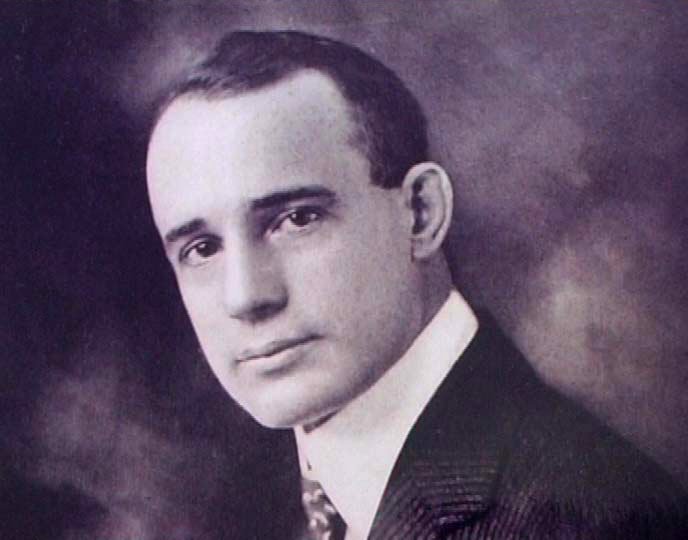By Upendra Mishra
When I was working at the Boston Business Journal, one of my jobs was to write profiles of founders and CEOs of major companies. I would spend several hours with them, observe them, ask many questions, organize their thoughts and answers and then write a story.

One of my early interviews was with Robert Griffin, one of the rising stars of commercial real estate investment brokerage. During the 1990s as a young fellow, Mr. Griffin was on the top of his game. Although, he was neither a CEO nor the founder of a company, I was impressed by his meteoric rise in the marketplace. I pitched his story to my editor and he hesitatingly agreed.
Before I talk about my interview, here is a quick update on Mr. Griffin. Currently, he leads one of the nation’s most successful capital markets groups as Co-Head of NKF Capital Markets. In his 35-year career, Mr. Griffin and his team have closed more than 800 transactions worth $65 billion.
When I asked what inspired Mr. Griffin the most, he calmly responded: Self-help books. I must admit I was in a total shock. I thought self-help books were made for weaker people, people who had no self-esteem or had some psychological issues. Which self-help book do you like most? I asked. He said: “Think and Grow Rich.” This title sent me into further shock. How can one grow rich by thinking?
Nevertheless, after the interview as I was walking in downtown Boston, I came across a book store. I walked in and purchased a copy of Think and Grow Rich (first published in 1937) by Napoleon Hill.
Mr. Hill was born into poverty in 1883 and died in 1970. His book Think and Grow Rich has been among the 10 best-selling self-help books of all time. Once I started to read his book, I literally finished it in a few days, and read it a few more times later. The book talks about the power of thinking and gives real life and inspiring examples from modern history.
Mr. Hill served as an advisor to Andrew Carnegie and Franklin Roosevelt. “With Carnegie’s help, he formulated a philosophy of success, drawing on the thoughts and experiences of multitude of rags-to-riches tycoons,” according to his official biography.
Years later, I came across another book: Napoleon Hill’s Key to Success (published 1997). It is edited by Matthew Sartwell, and is compiled from manuscripts, lectures and other materials Mr. Hill wrote. In most of his writings, Mr. Hill’s main focus is the power of thinking and definiteness of purpose and desire.

“Think of your mind as a piece of land. Through diligent, planned work, it can be cultivated into a beautiful and productive garden. Or it can lie fallow, overrun by weeds sprouting from seed carried by passing birds and the wind,” he writes. “Harvesting the bounty of your mind depends on careful effort and preparation by you, the gardener. The organization and its successful implementation are the result of accurate thinking. All plans, purposes, and achievements are created by thought. Your thoughts, you have already learned, are the only thing over which you have complete control. You can use them wisely or unwisely, but however you do it, your thoughts have power.”
Much before Mr. Hill explained the power of thoughts and mind, Buddha had done the same more about 2,500 years ago. “All that we are is the result of what we have thought. If a man speaks or acts with an evil thought, pain follows him. If a man speaks or acts with a pure thought, happiness follows him, like a shadow that never leaves him.”
Buddha was a master thinker, and no wonder his philosophy or teachings continue to be popular worldwide today. “The mind is everything. What you think you become,” he had said.
In Yog Vashishtha, mind and one’s own thought play the most important role in everything that happens to us and around us: “A yogi knows that it is one’s own mentality that turns sweet things into bitter things and vice versa, and friends into enemies and vice versa.”
In Brihadaranyaka Upanishad when king Janak asks sage Yajnavalkya to teach him more of the way to self-realization, the sage says:
“You are what your deep, driving desire is.
As your desire is, so is your will.
As your will is, so is your deed.
As your deed is, so is your destiny.”
In modern times, Mr. Hill takes real life examples and teaches us the power of mind and accurate thinking. “You can never achieve anything great without learning to think accurately,” says Mr. Hill.
To be an accurate thinker, however, Mr. Hill adds that you must take two important steps:
- Separate facts from opinions, fictions, unproved hypotheses, and fantasy.
- Separate facts into two categories: important and unimportant.
“You cannot accept an opinion offered to you unless it is based on facts or sound hypotheses about the facts. You should not offer any opinions except on the same grounds. Accurate thinkers never act on freely offered opinions without giving them the closet scrutiny; they permit no one to do their thinking for them. They obtain facts, information, and counsel from others, but they retain the right to accept or reject in a whole or part.”













